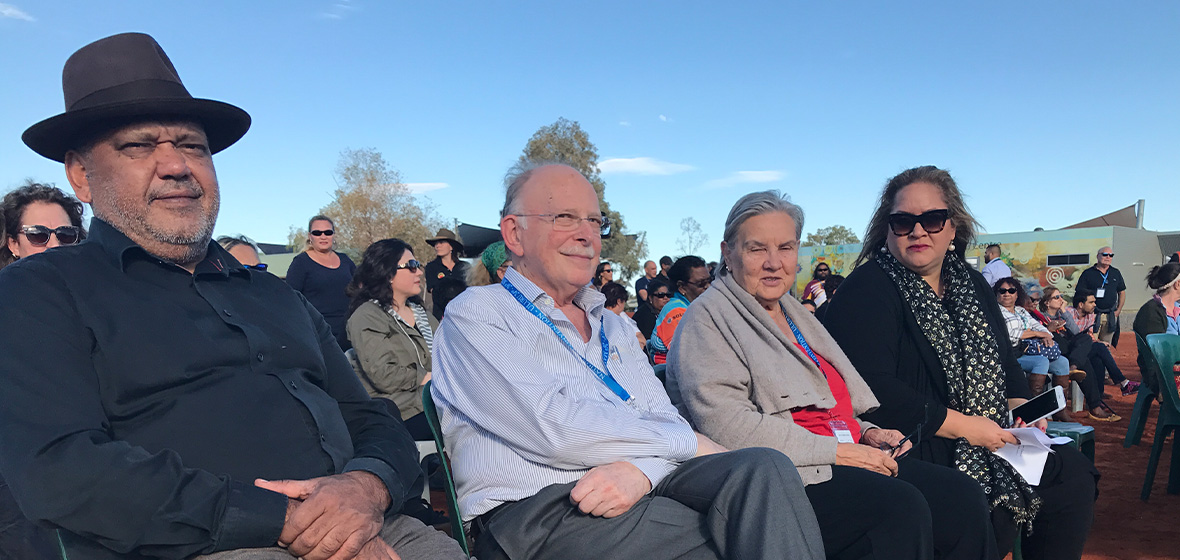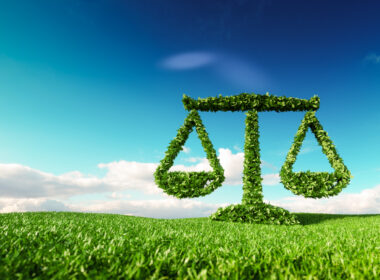Mark Leibler is Senior Partner with Arnold Bloch Leibler, the first Australian law firm to launch a Reconciliation Action Plan. He has been a Board member and co-chair of Reconciliation Australia, and co-chaired both the Expert Panel on Constitutional Recognition of Indigenous Australians and the Referendum Council on Constitutional Recognition of Aboriginal and Torres Strait Islander Peoples. Leibler answers LSJ’s questions about his views on constitutional recognition.
Why, in your view, is constitutional recognition of Indigenous Australians important?
Firstly, we are privileged as Australians that our history encompasses the most ancient, enduring culture on earth. Surely our founding document should recognise and celebrate this richness.
The other main reason is that, while Australians of today are not responsible for past wrongs, we are responsible for recognising the impact of intergenerational trauma and for supporting Indigenous fellow citizens to heal from this trauma so that it doesn’t negatively impact generations to come.
Ever since John Howard announced during the 2007 election campaign that, if re-elected, he would work towards constitutional recognition, the aspiration has been embraced by every subsequent government, regardless of its political persuasion. At least the last three federal governments have also recognised that there is no value in moving forward on constitutional recognition with a model that doesn’t align with the wishes of the people we seek to recognise.
It’s unfathomable [to me] that some of those opposed to the Voice believe we should impose a model of recognition on First Peoples which is not acceptable to them.
For my part, I view the proposal that will be put to the Australian people as moderate and reasonable – it is nothing short of a precious gift we have been offered that Aboriginal and Torres Strait Islander Australians expect nothing more than a voice in their own affairs.
You’ve been closely involved in the journey towards constitutional recognition for well over a decade – can you outline your involvement?
I served as co-chair of both the Expert Panel on Constitutional Recognition of Aboriginal and Torres Strait Islander Australians that reported in 2012, and then the Referendum Council that culminated in the release of the Uluru Statement from the Heart in 2017.
I took on both of these roles essentially because I care and because I view it as a responsibility. I was asked to serve in these roles by two prime ministers of different political persuasions – Julia Gillard and Malcolm Turnbull. It never occurred to me to decline.
An earlier role was as a founding member of Reconciliation Australia, which I co-chaired for six years from 2005.
Of course, aside from these formal positions, I’ve been closely involved in the journey towards recognition and reconciliation, day to day, advocating for change both publicly and behind the scenes.
I was one of very few non-Indigenous people to attend the closing ceremony at Uluru where the Statement from the Heart was endorsed with great joy and hope. It was a deeply spiritual experience for me, and I only wish that every Australian had had such an opportunity because, if they did, I have no doubt the referendum would receive 99.9 per cent support.
Why should the Voice be enshrined in the Constitution rather than legislated?
First Nations people want the Voice to be in the Constitution so that it cannot be abolished at the whim of a government, as other Indigenous bodies have been in the past. But only the principle of the Voice will be in the Constitution – all the detail about its form and function will be legislated by the parliament and amended by legislation if and when required.
More important, though, is the fact that by providing for the Voice in the Constitution the Australian people perform an act of recognition of the First Peoples of our continent in the manner that the First Peoples have chosen.
You’ve quoted Noel Pearson, lawyer and advocate for Indigenous Australians’ rights to land, as saying that Indigenous people can and must resist victimhood, even in the face of persistent racism and victimisation. How do you believe the Voice can assist with this?
The main lesson governments, businesses and non-profit organisations have learned from decades of policy failure in working to improve the circumstances and life opportunities of Indigenous Australians is the imperative of working in close, respectful partnership.
‘The main lesson governments, businesses and non-profit organisations have learned from decades of policy failure in working to improve the circumstances and life opportunities of Indigenous Australians is the imperative of working in close, respectful partnership.’
The “Canberra knows best” approach has been poorly targeted and disempowering, wasting lives, potential and many billions of taxpayer dollars on ineffectual programs. This is why First Nations people want, need and deserve a Voice.
You’ve said, “people who have questions and/or doubts about the Voice – at least the vast majority – are not racist. This is not about racism.” What, then, do you believe those doubts stem from? And how can they be dispelled?
In large part, these concerns stem from the deluge of misinformation, in many cases deliberate, seeded by those who oppose the Voice for ideological reasons.
The confusion out there in the community is understandable and it can only be dispelled by a strong YES campaign that focuses on the positives rather than getting bogged down negating the nonsense.
It is hugely important for people and organisations who have the facts to assume responsibility for disseminating them widely and persuasively.
With some high-profile Aboriginal leaders advocating a NO vote, what is the argument for non-Indigenous Australian voting YES?
No proposal will ever attract 100 per cent support and no sizeable group of people will unanimously agree on anything. But the Voice to Parliament was the agreed outcome of an unprecedented consultation process with Aboriginal and Torres Strait lslander Australians, engaging a greater ratio of the population than the constitutional convention debates of the 1800s, from which Indigenous peoples were entirely excluded.
Since 2017, subsequent processes and multiple polls have consistently shown overwhelming support for the Voice among Indigenous Australians – hovering around 86 per cent.
How can we dispel the concern expressed that the Voice would amount to a third, cumbersome chamber of Parliament?
By explaining that it has always been a mischievous suggestion and always been wrong. Even former PM Malcolm Turnbull and the National’s Barnaby Joyce, who were among the first to trot out the claim, have since walked away from it.
The Voice would have no power of veto, no consultation rights, no scope to interfere in the workings of government or the parliament. Its real power would be moral, and the potential upside for Indigenous Australians and the nation is immense.
How would the Voice make a difference to the circumstances of many Indigenous Australians? And how would this impact the rest of the Australian community? (There appears to be a misconception that one group would receive special treatment, which would then disadvantage others.)
We are not talking about “one group of people”. We are talking about the Indigenous peoples of this land, whose status is different by virtue of their unique, undeniable status as Australia’s First Nations.
The former Chief Justice of the High Court, Murray Gleeson, put it most eloquently in a speech a few years ago when he said: “The division between Indigenous people and others in this land was made in 1788. It was not made by the Indigenous people. The race power in the Constitution is now used in practice to make special laws for them. The object of the [Voice] proposal is to provide a response to the consequences of that division.”
As far as the broader population is concerned, giving Indigenous people in this country a formal voice in laws and policies that affect them has the potential to achieve better outcomes for less budget expenditure. But that’s not the only reason: giving a formal voice will also be a deeply unifying moment in our nation’s history.
The most successful referendum in Australia’s history was the 1967 referendum in which more than 90 per cent of Australians voted YES to amending sections of the Constitution that specifically discriminated against Indigenous Australians.
Since then, the High Court’s Mabo decision overturned the fiction of terra nullius, and the National Apology [in 2008] allowed Australians of today to express their sorrow for past wrongs and First Nations peoples to accept that apology.
Constitutional recognition in the form favoured by Indigenous Australians would establish a new framework for dialogue and the foundation for a prouder, more unified nation overall.




